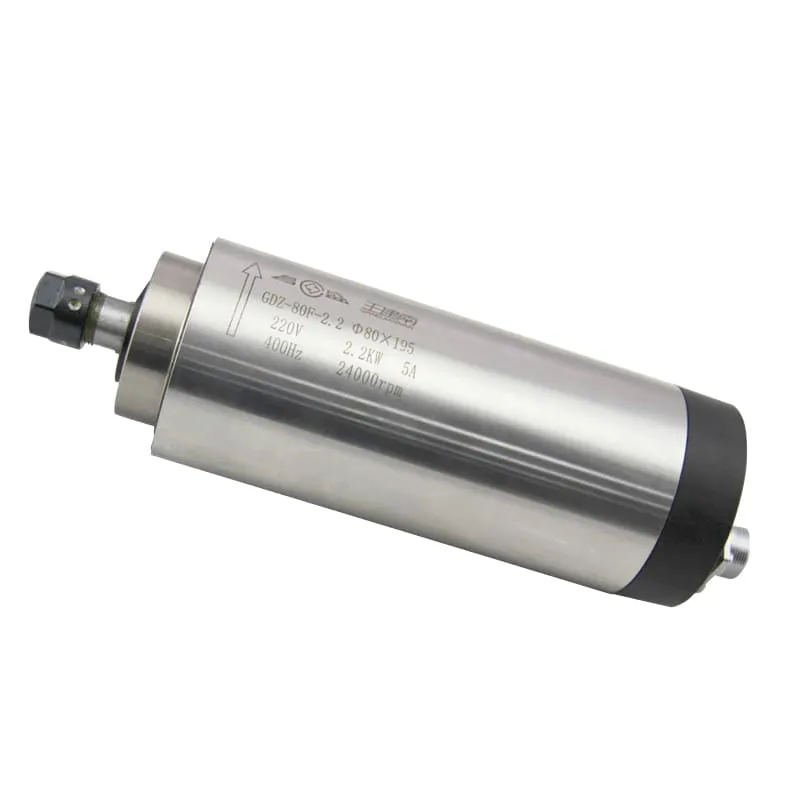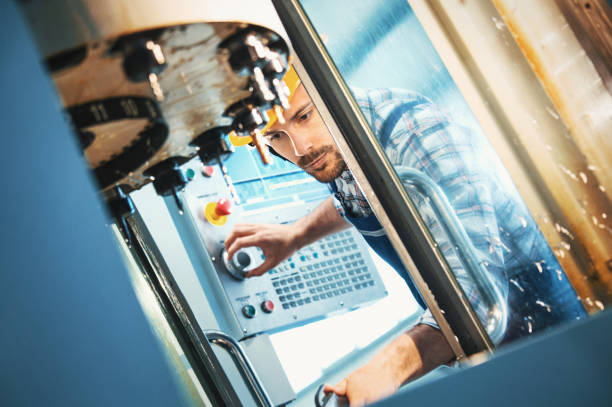How Do I Get CNC Certified?
Obtaining CNC (Computer Numerical Control) certification can significantly enhance your career prospects in the manufacturing industry. This comprehensive guide will explore the process of becoming CNC certified, including various certification options, required skills, and steps to achieve certification.
Understanding CNC Certification
CNC certification demonstrates your proficiency in operating and programming CNC machines. It validates your skills and knowledge in computer numerical control technology, making you a more attractive candidate for employers in the manufacturing sector.

A CNC machine operated by certified professionals
Types of CNC Certifications
Several organizations offer CNC certifications, each with its own focus and requirements:
- NIMS (National Institute for Metalworking Skills) Certifications
- CNC Operator
- CNC Programming
- CNC Setup and Operations
- MSSC (Manufacturing Skill Standards Council) Certification
- Certified Production Technician (CPT)
- Manufacturer-Specific Certifications
- Haas CNC Certification
- Fanuc CNC Certification
- Educational Institution Certifications
- Community college CNC programs
- Technical school certifications
Steps to Obtain CNC Certification
1. Assess Your Current Skills and Knowledge
- Evaluate your understanding of CNC operations
- Identify areas where you need improvement
2. Choose a Certification Path
- Research different certification options
- Select the certification that aligns with your career goals
3. Meet Educational Prerequisites
- High school diploma or equivalent is typically required
- Some certifications may require additional coursework
4. Gain Hands-On Experience
- Work with CNC machines in a professional or educational setting
- Familiarize yourself with various types of CNC equipment
5. Complete Required Training
- Enroll in CNC machinist training programs
- Attend workshops and seminars on CNC technology
6. Study for the Certification Exam
- Review study materials provided by the certifying organization
- Practice sample questions and take mock exams
7. Take the Certification Exam
- Register for the exam through the certifying organization
- Complete both theoretical and practical components of the test
8. Maintain Your Certification
- Stay informed about recertification requirements
- Participate in continuing education to keep your skills current
Key Skills for CNC Certification
To successfully obtain CNC certification, you should develop proficiency in:
- CNC Programming
- G-code and M-code
- CAM software usage
- Machine Operation
- Setting up CNC machines
- Tool selection and management
- Blueprint Reading
- Interpreting technical drawings
- Understanding geometric dimensioning and tolerancing (GD&T)
- Precision Measurement
- Using calipers, micrometers, and other measuring tools
- Quality control procedures
- Computer Skills
- Operating CNC control interfaces
- Basic computer literacy
- Mathematics
- Geometry and trigonometry
- Calculating feeds and speeds
- Safety Procedures
- OSHA standards
- Machine-specific safety protocols
Preparing for CNC Certification
1. Educational Programs
Consider enrolling in:
- Community college CNC programs
- Technical school courses
- Online CNC training modules
2. Hands-On Training
Gain experience through:
- Apprenticeships
- Internships in manufacturing facilities
- Entry-level positions in machine shops
3. Self-Study Resources
Utilize:
- CNC textbooks and manuals
- Online tutorials and video courses
- Practice software for CNC programming
4. Networking
Connect with industry professionals:
- Join manufacturing associations
- Attend industry conferences and trade shows
- Participate in online CNC forums
Benefits of CNC Certification
- Increased Job Opportunities
- Stand out to potential employers
- Qualify for higher-level positions
- Higher Earning Potential
- Certified CNC operators often command higher salaries
- Opportunity for advancement to supervisory roles
- Validation of Skills
- Demonstrate your expertise to employers and clients
- Build confidence in your abilities
- Industry Recognition
- Gain respect from peers in the manufacturing field
- Potential for leadership roles in professional organizations
- Continuous Learning
- Stay updated with the latest CNC technologies
- Opportunity for specialization in specific areas of CNC
Challenges in Obtaining CNC Certification
- Time Commitment
- Balancing study with work and personal life
- Dedicating time for hands-on practice
- Cost
- Expenses for training programs and certification exams
- Potential need for personal CNC equipment or software
- Keeping Up with Technology
- Rapidly evolving CNC technology requires continuous learning
- Need to stay informed about industry trends
- Practical Experience Requirements
- Some certifications require documented work experience
- Securing relevant experience can be challenging for newcomers
Advanced CNC Certifications
After obtaining basic certification, consider advancing your skills with:
- Multi-Axis Machining Certifications
- 5-axis CNC operation and programming
- Specialized Material Certifications
- Certifications for working with exotic metals or composites
- CNC Maintenance Certifications
- Focus on troubleshooting and maintaining CNC equipment
- Advanced Programming Certifications
- Parametric programming
- Macro programming
Industry Trends Affecting CNC Certification
Stay aware of these trends as you pursue certification:
- Integration of AI and Machine Learning
- Certifications may start including AI-related content
- Additive Manufacturing
- Hybrid CNC and 3D printing certifications emerging
- Industry 4.0 and IoT
- Increased focus on connected manufacturing systems
- Sustainability in Manufacturing
- Growing emphasis on eco-friendly CNC practices
FAQ
1. How long does it take to get CNC certified?
The time can vary, but typically it takes 3-12 months, depending on your background and the specific certification.
2. Is CNC certification necessary to work as a CNC operator?
While not always mandatory, certification can significantly improve your job prospects and earning potential.
3. How much does CNC certification cost?
Costs can range from a few hundred to several thousand dollars, depending on the certification and required training.
4. Can I get CNC certified online?
Some theoretical components of CNC certification can be completed online, but hands-on practical experience is usually required.
5. How often do I need to renew my CNC certification?
Renewal requirements vary by certifying organization, but typically every 2-5 years.
6. Is CNC certification recognized internationally?
Many CNC certifications are recognized globally, but it’s important to check the specific recognition in your target country or region.
Conclusion
Obtaining CNC certification is a valuable step in advancing your career in the manufacturing industry. It demonstrates your commitment to professionalism and your expertise in computer numerical control technology. While the process requires dedication and effort, the benefits in terms of career opportunities and personal growth make it a worthwhile investment.
As you embark on your journey to become CNC certified, remember that the learning process extends beyond the certification itself. The field of CNC machining is constantly evolving, with new technologies and techniques emerging regularly. Your certification should be viewed as a foundation upon which to build a career of continuous learning and improvement.
The skills you develop through the certification process – from programming and machine operation to problem-solving and quality control – are valuable not only in CNC-specific roles but across the broader manufacturing sector. These skills position you to adapt to future changes in the industry and potentially take on leadership roles as your career progresses.
Moreover, the process of obtaining CNC certification can open doors to networking opportunities within the industry. Engaging with instructors, fellow students, and industry professionals during your certification journey can lead to valuable connections and insights into the manufacturing world.
As manufacturing processes become increasingly automated and sophisticated, the role of skilled CNC professionals becomes even more critical. By obtaining CNC certification, you’re not just proving your current abilities; you’re also positioning yourself as a professional committed to excellence and ready to tackle the challenges of modern manufacturing.
Whether you’re just starting your career in manufacturing or looking to enhance your existing skills, CNC certification offers a clear path to professional growth and recognition. With dedication, practical experience, and a commitment to ongoing learning, you can establish yourself as a valued expert in the field of CNC machining, contributing to the production of precision parts and components that drive industries around the world.

